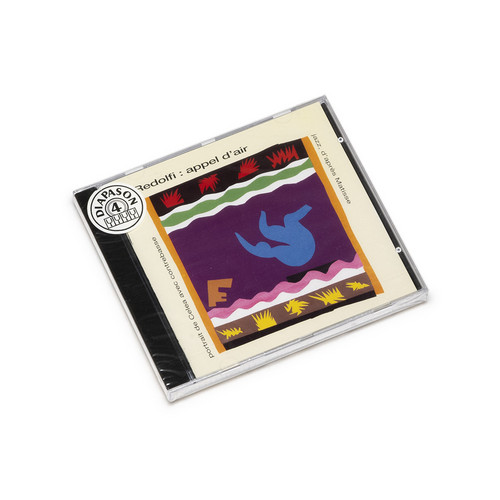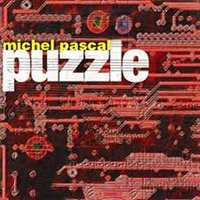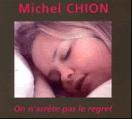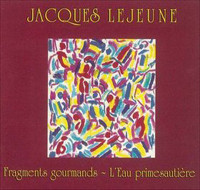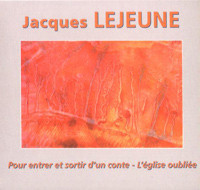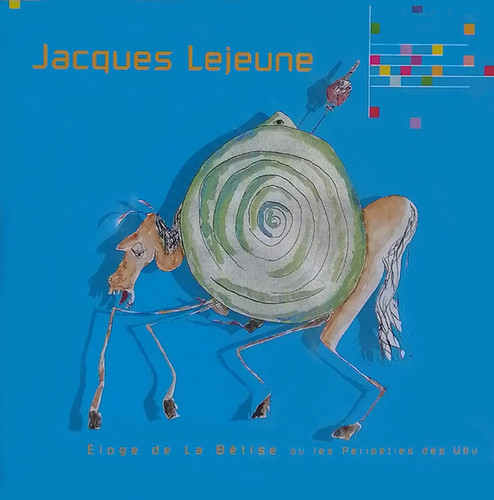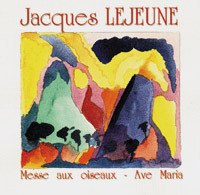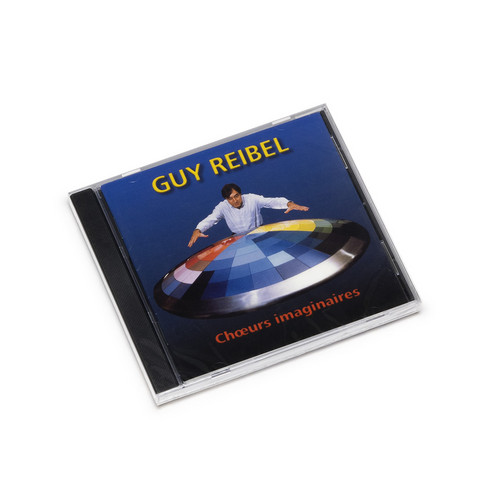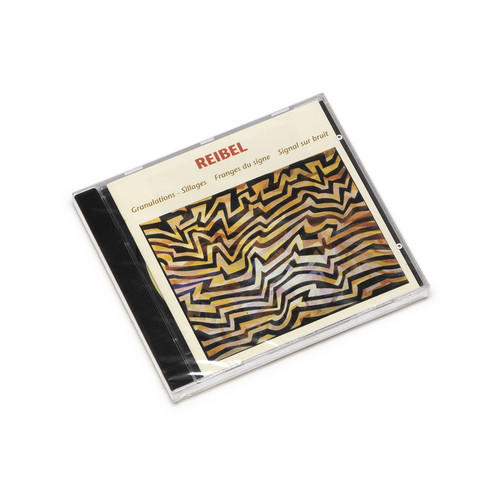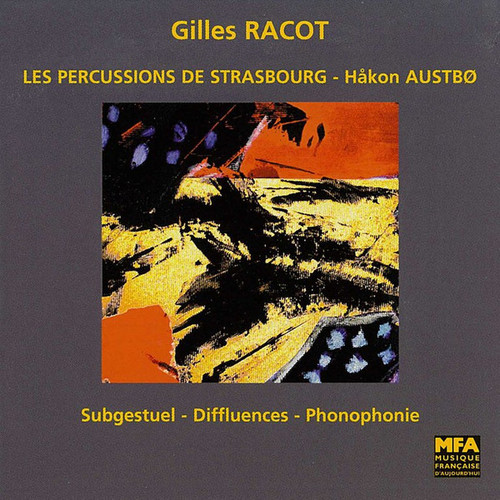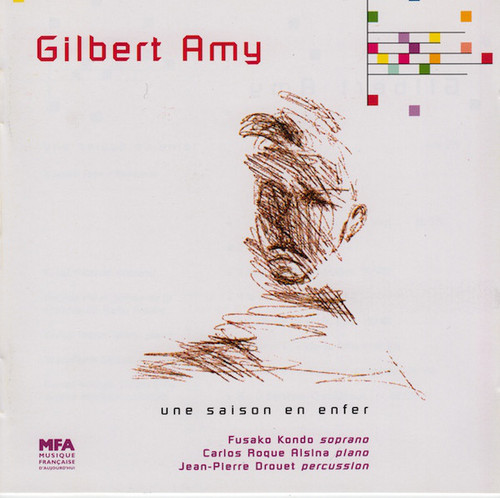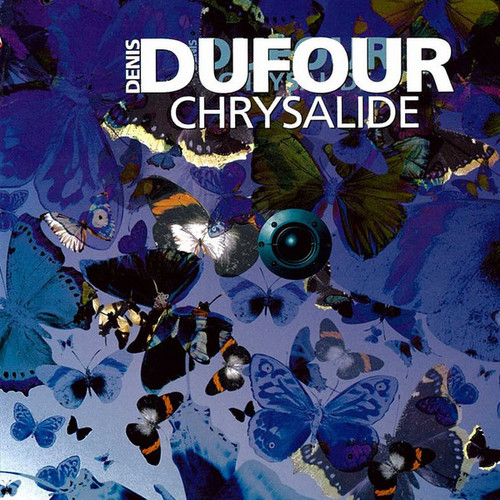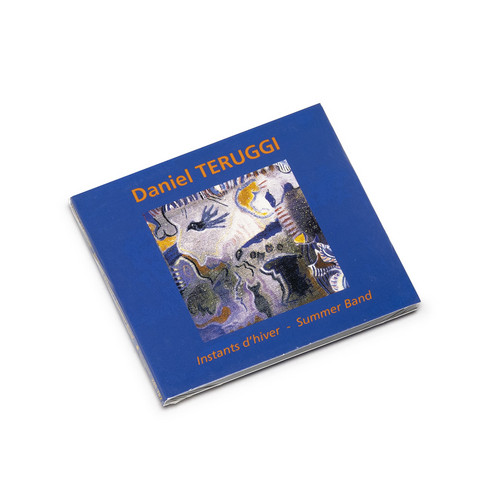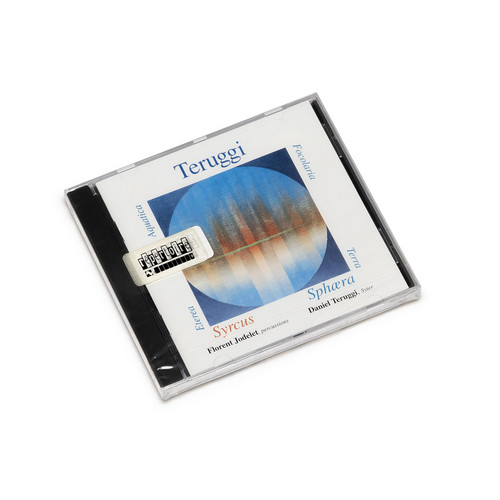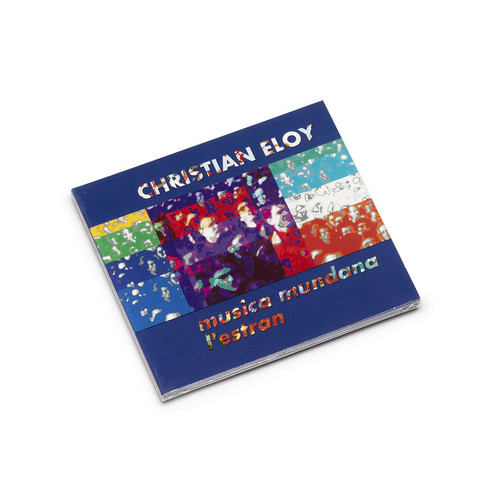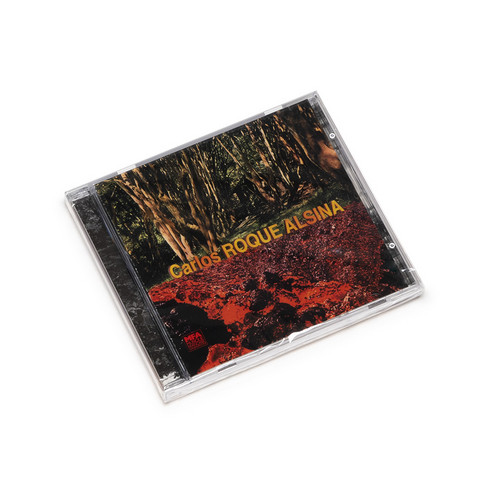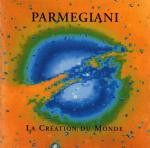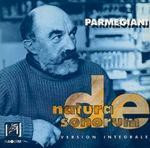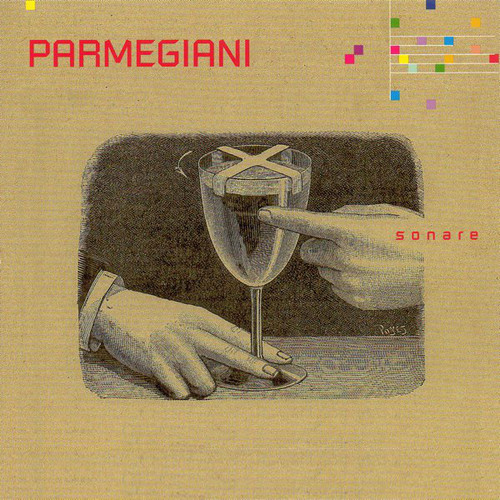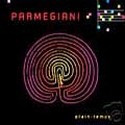★INA - GRM
Appel D'Air
Desert sounds, assembled from concrete recordings in the Mojave. Draws you in - a kind of ultra-radical wallpaper music; sometimes extreme and always somehow on the point, never redundant. Like much of this music, a dark room opens a new ear. Also includes Pacific Tubular Waves.. the LP has this and another piece but not Deserts. And it comes with a 3-D cover and red-green glasses. On 'Appel' MR turns from water to the sounds of air - transformed.
Puzzle
"Produced by Centre international de recherche musicale, Nice, France. Project involving 22 instrumentists featuring Pierre-Yves Artaud (flutes), Alexandre Ouzounoff (bassoon), Daniel Kientzy (saxophone), Vinko Globokar (trombone), Elisabeth Chojnacka (harpsichord). Puzzle 1999 (14-17) commissioned by INA-GRM." (Discogs)"An extension of the 'virtual orchestra' in which composer Pascal composes music out of gathered individual instrumental tones and lines (with the musicians never having met …
On n’arrête pas le regret
LAST COPIES, already out of print - Beatiful early compositions for the well known INA composer: 'Sambas pour un jour de pluie' (1985), 'La machine à passer le temps' (1972), 'On n'arrête pas le regret' (1975)
Fragments gourmands
1999 release ; two mid-90s concrète pieces from lejeune - both based on brillet-savarin’s “greedy fragments” (the english version of lejeune’s exceedingly detailed / gross libretto is printed below en toto) & performed by daniel kientzy ...delightfully wonky digital-era concrète, replete with bad “lounge” drum-machine beats & endless french-language insinuation(s) whose subtlety is lost on a part-time speaker such as myself ...ina-grm press release...“gourmet passages”after brillat-savarinanimal…
Pour Entrer Et Sortir d Un Conte - L'Eglise Oubliee
Two musique-concrete episodes from a larger work entitled Les Contes de la forêt profonde (Tales from the Deep Forest) sparse entries, with an emphasis on sliding shepard tones & digitally mutating concrète texturesPour entrer et sortir d'un conte (1990 - 21'05) the "entrance" is like passing through a maze. the elements are propelled by processes of repetition and recurrence and tend towards stagnation within a structure consisting of blocks set side by side and thick. compact, opaque masses. t…
Eloge de la betise ou les peripeties des Ubu
Funambulesqueries en 14 séquences adapted from Alfred Jarry's Ubu Roi, for voices, saxophones and tape. Jacques Lejeune studied music at the Schola Cantorum and the Paris Conservatory with Daniel-Lesur and Pierre Schaeffer before working with François Bayle at the Groupe de Recherches Musicales. He entered the GRM in 1968, taking charge of the “music cell for images”, where he completed various projects for stage and television. It was at his insistence that in 1978 the Ateliers de la Musique Él…
Messe aux Oiseaux
Electronic music work: “Messe aux oiseaux” (1986)in new version (1999), “Ave Maria” (1987). "Electroacoustics to me is like abstract paintings, and that is what I tell people who question my sanity when they hear what I want to play to them. Can they accept abstract art, or does it have to be figurative, naturalistic? Most people tend to accept abstract art, and comparing electroacoustics with nonfigurative painting tends to ease the tension a bit when I insist on demonstrating some electr…
Chœurs imaginaires
This piece develops a preoccupation already begun in “Naissance du verbe” (Birth of the Word), the result of research on language and phonemes undertaken by Bernard Ucla. The idea behind this research is that the sign in language is not arbitrary, but that the choice of phonemes at the origin of languages obeys a long elaboration, and that between the meaning of words and the phonemes that express them, mysterious relationships exist: the phoneme is not a neutral acoustic substance but carries s…
Granulations-Sillages — Franges Du Signe — Signal Sur Bruit
Granulations-Sillages develops an idea glimpsed at in Franges du Signe: the existence of extreme times, at the edge of our faculties of perception, which only the electroacoustic music tools allow us to realise. Two natures of phenomena, opposed in all respects (the Granulations-Trails and the Tutti), alternate through seven movements that constitute the piece. The work is designed for six channels diffused in concert on a main stereo system facing the public and two auxiliary stereos (group of…
Subgestuel - Diffluences - Phonophonie
A first monographic compact disc for this composer born in 1951, a pupil of Pierre Schaeffer and Guy Reibel, winner of the Villa Médicis Prize "hors les murs" in 1995, who has also contributed to the musical research activities of the IRCAM, in the Atelier de Recherches Instrumentales (1985 and taken part in the development of the Quatron, the real-time synthesis computing system of the IMCA at Auch (1989-1990).
On 'Diffluences': "The relationship between tape and piano is not the classical one…
Une Saison En Enfer
Composed in 1979 and realized at Conservatoire National Supérieur de Musique (Lyon, France) by Gilbert Amy with the assistance of Daniel Teruggi. Performed with Fusako Kondo (soprano), Edwige Parat (soloist of Maîtrise de Radio France), Jean-Pierre Drouet (percussions).
Chrysalide
In Bocalises, Denis Dufour explored with virtuosity the sound possibilities of a sole sound source, glass jars broken, crushed and mixed to themselves to infinity. Fifteen years later, he takes up the material and, with digital tools, presents a retouched and recoloured version to give a new power and poetic richness to the initial energy.
Instants D'Hiver - Summer Band
Daniel Teruggi (1952-) studied Physics, composition and piano in Argentina. In 1977 he moved to France where he studied at the Paris National Conservatory. In 1981, he starts working at INA (National Audiovisual Institute), at the Groupe de Recherches Musicales (GRM). In 1997 he becomes Director of the Groupe de Recherches Musicales of INA, a position he kept until his retirement in 2017. From October 2001 to 2016 he was simultaneously Director of the Research and Experimentation Department of I…
Sphæra
In Daniel Teruggi's own words: Between 1984 and 1989, my acousmatic work was focused on processing and merging the four fundamental substances. Each « element » gradually became articulated with the others, thus crystallizing my subjective perception of their materiality. Over the years, helped by the enthusiasm of a Greek friend who propelled me into the Socratic universe, what started out as an exploratory path has become a circular, spherical unity, in which each occurrence simultaneously bel…
Musica Mundana / L'Estran
'Musica Mundana': Mixed, fusion and root music, work on 'harmonisation' of various music and vocals. A genuine alchemy! 'L'Estran': What a beautiful metaphor is this piece of coastline. It conveys an impression of in-between, uncertainty, contraries. After studying music in the French National Music School, a decisive encounter with Ivo Malec, Guy Reibel, Jacques Lejeune and Jean Schwarz at the GRM will introduce him to electroacoustic music which he will afterwards focus on. He has composed aro…
Hinterland
Carlos Roque Alsina is an Argentinean-born composer who tends to mix acoustic and taped sounds together in a manner that evokes natural sounds to some degree, something of a more programmatically inclined Iannis Xenakis. The title piece combines piano and percussion with taped sounds that often possess an organ-like quality. While the acoustic instruments dance around each other in intricate patterns, the tape heaves and respires ominously, depicting the sort of backcountry that's unsettling in …
La creation du monde (1982-84)
This is a sprawling, ambitious painting in sound modeled on the birth of the universe. Moving from roiling, gaseous clouds of hiss and static through sharp peels of detailed, unrestrained texture, this is acousmatic music at its very finest, literally creating a universe of sound out of thin air. (AMG)
De natura sonorum
Classic 1975 recording of mostly quiet, resonating electronic sounds. "With the music of Bernard Parmegiani something in us is freed and comes out of passivity. This thing, which I know now was blocked without my knowing where, is the buzzing and Time within the flesh -- a humming of millions of closed mouths between the cells. What is the murmur made up of? The body develops a tongue in listening to this music, and there is within it great movement of the sound material... it is music that make…
Sonare
One 25 minute piece, from 1996. A State/CIRM commissioned work. A dreamy five-movement suite that deals with the encounter and metamorphosis of natural sounds and synthetic sounds. Bernard Parmegiani wrote about this piece "There is already music... of an Italian an character in this title! Sonare: l love this word because it is Italian and because upon hearing it, music simply springs forth from within it. For each of the 5 movements, I have chosen a pseudo-instrumental or synthesis sound whic…
Plain-temps
2006 release, presenting 3 versions of "Plain-Temps". Classic new work from the most important INA GRM composer. The first part of the suite, "Le Present Compose" is from 1991, recorded here in 2006. "The second part is "Entre-Temps" from 1992. "The gradual slowing down of the tick-tock sound of a penduluum with which the this piece opens provides us with not only the most symbolic but also the most illusory image of the passing of time. This is followed by by a constantly changing continuum, ap…
